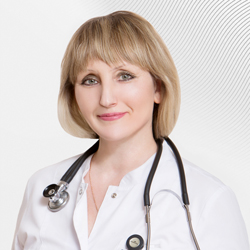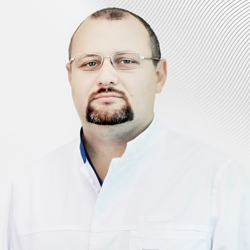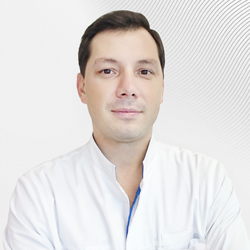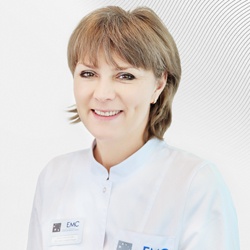
Intensive Care Unit
The Intensive Care Unit (ICU) provides emergency medical care, as well as a range of intensive care and resuscitation procedures for medical and surgical patients.
The main goal of the ICU is the restoration and maintenance of the patients’ vital bodily functions.
The main areas of work are:
acute cardiovascular pathology;
decompensated pulmonary pathology;
acute cerebrovascular accidents;
intensive postoperative support of patients after surgical, neurosurgical, oncological, gynecological, urological, and other interventions;
treatment of patients with acute renal and hepatic insufficiency;
treatment of patients with toxic, septic or anaphylactic shock;
treatment of patients with a pulmonary embolism;
monitoring in the ICU after anesthesia.
The main treatment methods used in the ICU are:
Hemodynamic monitoring and support;
Restoration and maintenance of normal fluid, electrolyte, and acid-base balance;
Ensuring adequate lung ventilation; treatment and prevention of acute respiratory failure.
Intensive care after acute cerebrovascular accidents;
Prevention and treatment of function disturbances of the parenchymal organs;
Reduction of pain using non-opioid and opioid analgesia, and prolonged epidural blocks;
Management of disturbed metabolism;
Antibacterial therapy;
Drug and extracorporeal detoxification;
Parenteral and enteral tube feeding.
The ICU doctors are highly qualified specialists, with extensive experience of working in the intensive care units of major emergency and surgical centers in Moscow. They have undergone special training in resuscitation and intensive therapy for patients in critical conditions.
Work in the ICU is carried out in close cooperation with all the other Departments of the EMC. Patients undergo tests and examination at any time of day or night, in order to establish the diagnosis, and to provide the appropriate care. There are daily morning rounds with the Chief Physician, Deputy Chief Physician for Treatment, Deputy Chief Physician for Inpatient Care, and the treating doctors.
The qualifications of the ICU staff enable them to prepare patients with severe metabolic and electrolyte disturbances for surgery, as well as provide appropriate postoperative treatment, with the help of modern technology.
The Intensive Care Unit is equipped with the most modern and high-tech equipment, necessary for monitoring and supporting the body’s vital functions. The unit has an anesthesiologist and emergency physician on call 24/7.
| Name | Price, € | Price, ₽ | Code |
| Oncologist consultation | 309 € | 30 522 ₽ | CS31 |
| Consultation before chemotherapy for malignant tumors and doctor's supervision during infusion treatment | 253 € | 24 991 ₽ | CS58 |
| Oncologist and palliative care specialist consultation | 405 € | 40 005 ₽ | CS59 |
| Hematologist consultation before chemotherapy | 253 € | 24 991 ₽ | CS98 |
| Radiation-Oncologist consultation | 309 € | 30 522 ₽ | CS_RT |
| Daily follow-up/consultation by treating doctor in oncology in-patient department | 309 € | 30 522 ₽ | CS139 |
| Oncologist remote consultation | 309 € | 30 522 ₽ | RCS31 |
| Oncologist and palliative care specialist remote consultation | 405 € | 40 005 ₽ | RCS59 |
| Radiologist-oncologist remote consultation | 309 € | 30 522 ₽ | RCS1_RT |
| Remote interpretation of PET-CT scan results from another clinic | 220 € | 21 731 ₽ | RCS_PET |






